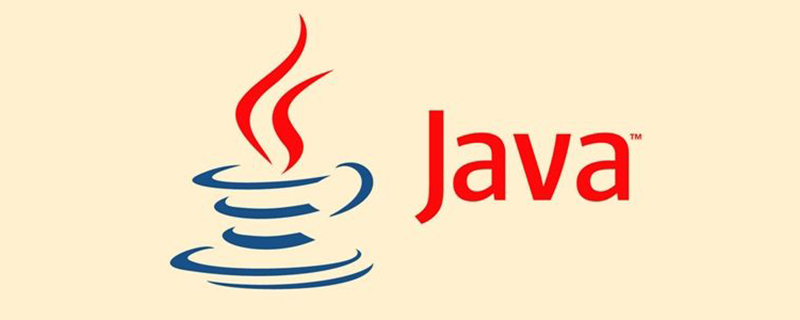What do java front-end and back-end mean?
Before introducing the java front-end and back-end, everyone needs to briefly understand what Java is? Below we will give you a detailed introduction to the concepts of Java and Java front-end and back-end. We hope it will be helpful to friends in need!

Java is an object-oriented programming language. It not only absorbs the various advantages of the C language, but also abandons the concepts such as multiple inheritance and pointers that are difficult to understand in C. Therefore, The Java language has two characteristics: powerful and simple to use. As a representative of static object-oriented programming languages, Java language perfectly implements object-oriented theory and allows programmers to perform complex programming with an elegant way of thinking.
Java has the characteristics of simplicity, object-oriented, distributed, robustness, security, platform independence and portability, multi-threading, and dynamics. Java can write desktop applications, Web applications, distributed systems and embedded system applications, etc.
The concept of Java front-end and back-end
1.java "front-end" is the part that interacts directly with the user, including when you are browsing the web All visual content - from fonts to colors, as well as drop-down menus and sidebars. These visual contents are presented by the browser after parsing, processing, and rendering related HTML, CSS, and Javascript files.
In short, if you want to learn Java front-end, you must learn HTML, css, js and other front-end technologies.
2.java backend Developers use these tools to write clean, portable, well-documented code to create or update web applications. But before writing code, they need to communicate with customers, understand their actual needs and translate them into technical goals, and develop the most effective and streamlined plan to achieve them.
In short, the java backend is mainly for business control and processing, such as accessing the database, updating data, viewing modifications, etc. The mainstream relational database in the Java field is mysql, and the currently more mainstream Java framework is the SSM framework, namely spring, springmvc, and mybatis.
Related recommendations: "Java Tutorial"
This article is an introduction to the java front-end and back-end. I hope it will be helpful to everyone!
The above is the detailed content of What do java front-end and back-end mean?. For more information, please follow other related articles on the PHP Chinese website!

Hot AI Tools

Undresser.AI Undress
AI-powered app for creating realistic nude photos

AI Clothes Remover
Online AI tool for removing clothes from photos.

Undress AI Tool
Undress images for free

Clothoff.io
AI clothes remover

AI Hentai Generator
Generate AI Hentai for free.

Hot Article

Hot Tools

Notepad++7.3.1
Easy-to-use and free code editor

SublimeText3 Chinese version
Chinese version, very easy to use

Zend Studio 13.0.1
Powerful PHP integrated development environment

Dreamweaver CS6
Visual web development tools

SublimeText3 Mac version
God-level code editing software (SublimeText3)

Hot Topics
 Top 4 JavaScript Frameworks in 2025: React, Angular, Vue, Svelte
Mar 07, 2025 pm 06:09 PM
Top 4 JavaScript Frameworks in 2025: React, Angular, Vue, Svelte
Mar 07, 2025 pm 06:09 PM
This article analyzes the top four JavaScript frameworks (React, Angular, Vue, Svelte) in 2025, comparing their performance, scalability, and future prospects. While all remain dominant due to strong communities and ecosystems, their relative popul
 Spring Boot SnakeYAML 2.0 CVE-2022-1471 Issue Fixed
Mar 07, 2025 pm 05:52 PM
Spring Boot SnakeYAML 2.0 CVE-2022-1471 Issue Fixed
Mar 07, 2025 pm 05:52 PM
This article addresses the CVE-2022-1471 vulnerability in SnakeYAML, a critical flaw allowing remote code execution. It details how upgrading Spring Boot applications to SnakeYAML 1.33 or later mitigates this risk, emphasizing that dependency updat
 How do I implement multi-level caching in Java applications using libraries like Caffeine or Guava Cache?
Mar 17, 2025 pm 05:44 PM
How do I implement multi-level caching in Java applications using libraries like Caffeine or Guava Cache?
Mar 17, 2025 pm 05:44 PM
The article discusses implementing multi-level caching in Java using Caffeine and Guava Cache to enhance application performance. It covers setup, integration, and performance benefits, along with configuration and eviction policy management best pra
 How does Java's classloading mechanism work, including different classloaders and their delegation models?
Mar 17, 2025 pm 05:35 PM
How does Java's classloading mechanism work, including different classloaders and their delegation models?
Mar 17, 2025 pm 05:35 PM
Java's classloading involves loading, linking, and initializing classes using a hierarchical system with Bootstrap, Extension, and Application classloaders. The parent delegation model ensures core classes are loaded first, affecting custom class loa
 Node.js 20: Key Performance Boosts and New Features
Mar 07, 2025 pm 06:12 PM
Node.js 20: Key Performance Boosts and New Features
Mar 07, 2025 pm 06:12 PM
Node.js 20 significantly enhances performance via V8 engine improvements, notably faster garbage collection and I/O. New features include better WebAssembly support and refined debugging tools, boosting developer productivity and application speed.
 Iceberg: The Future of Data Lake Tables
Mar 07, 2025 pm 06:31 PM
Iceberg: The Future of Data Lake Tables
Mar 07, 2025 pm 06:31 PM
Iceberg, an open table format for large analytical datasets, improves data lake performance and scalability. It addresses limitations of Parquet/ORC through internal metadata management, enabling efficient schema evolution, time travel, concurrent w
 How to Share Data Between Steps in Cucumber
Mar 07, 2025 pm 05:55 PM
How to Share Data Between Steps in Cucumber
Mar 07, 2025 pm 05:55 PM
This article explores methods for sharing data between Cucumber steps, comparing scenario context, global variables, argument passing, and data structures. It emphasizes best practices for maintainability, including concise context use, descriptive
 How can I implement functional programming techniques in Java?
Mar 11, 2025 pm 05:51 PM
How can I implement functional programming techniques in Java?
Mar 11, 2025 pm 05:51 PM
This article explores integrating functional programming into Java using lambda expressions, Streams API, method references, and Optional. It highlights benefits like improved code readability and maintainability through conciseness and immutability






